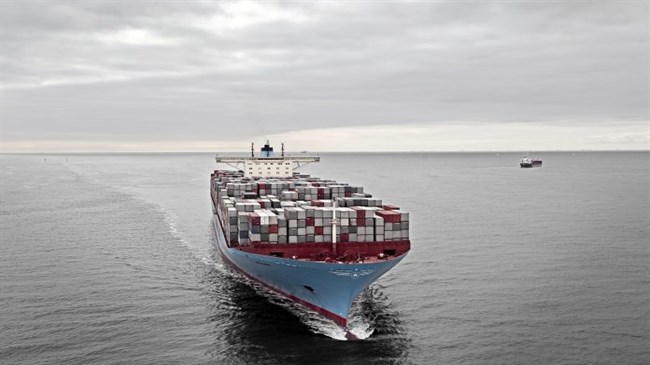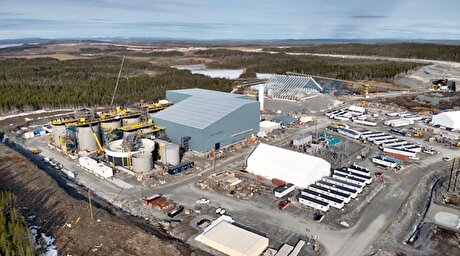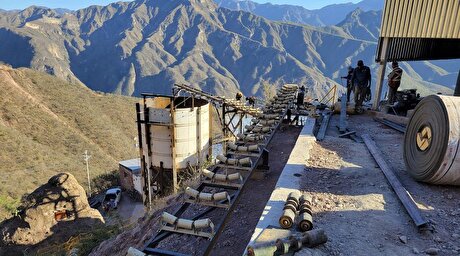
Why Chinese overseas investment growth is set to slow further

In a report released last week, Moody’s said Chinese infrastructure companies will be more selective when investing in projects outside the country, CNBC reported.
“Overseas investments will remain at a solid level, but companies will take a more cautious approach to these investments, especially in emerging and frontier markets,” wrote the authors of the report.
That’s due to an ‘increased awareness’ of the risks, they said.
“This awareness stems from the lessons — sometimes difficult ones — companies are learning from the sector’s rapid expansion into emerging and frontier markets during the past few years,” according to the report.
For years, Chinese overseas direct investments grew, boosted by government policy programs such as the Belt and Road Initiative.
The project, a flagship foreign policy of President Xi Jinping, is viewed as China’s bid to widen its influence — achieved by funding or taking on major infrastructure projects around the world, primarily in developing nations.
The massive project is aimed at connecting over 60 countries in Asia, Europe, Africa and the Middle East through overland and maritime routes.
Overseas direct investment in China jumped 49.3 percent in 2016, followed by two consecutive years of decline. It fell 23 percent year-on-year in 2017, and dropped 13.6 percent in 2018 compared to the previous year, Moody’s said, citing Chinese government data.
After its peak in 2016, growth started to slow as a result of regulatory controls and tighter liquidity conditions in China, according to Moody’s.
“We believe the reduction in 2018 also reflected a pullback by infrastructure companies as complications began to surface with investments they made in previous years, particularly in the Belt and Road emerging markets,” the report said.
“There are increasingly unpredictable changes in foreign governments’ attitudes toward Chinese investors, especially when overseas elections bring leadership change,” it added.
In recent years, countries such as Pakistan, Malaysia and Sierra Leone shelved or canceled their planned commitments to the Belt and Road project due to various reasons including political changes and resistance from local communities.
The US-China trade dispute is also “affecting other countries’ views on investments by Chinese companies and Chinese companies’ views on investing in other countries.”
Ada Li, senior credit officer at Moody’s, said BRI projects will also likely slow in the next few years, noting that foreign direct investments for the first half of 2019 have only grown 0.1 percent from the year before.
Additionally, Chinese state-owned companies, which typically participated in such projects, are now shifting their investment focus away from overseas markets and back to the mainland, said Li.
”(This is) to support the country’s ... GDP growth target of six percent to 6.5 percent, ” she told CNBC’s ‘Street Signs’ last week.
Still, infrastructure investments outside of China will remain at a solid level overall, and firms are taking steps to address concerns in overseas markets, Moody’s said.
“Despite the risks, these investments offer financial and strategic benefits for Chinese companies, which also benefit the Chinese government and economy,” the report said.
“These benefits include raising China’s international profile, expanding Chinese companies’ access to industry knowledge and natural resources, and diversifying their geographic markets and revenue streams.”


Energy Fuels soars on Vulcan Elements partnership

China extends rare earth controls to imported material

Galan Lithium proceeds with $13M financing for Argentina project

Northern Dynasty sticks to proposal in battle to lift Pebble mine veto

Ukraine launches tender for major lithium deposit

KoBold Metals granted lithium exploration rights in Congo

Freeport Indonesia to wrap up Gresik plant repairs by early September

Critical Metals signs agreement to supply rare earth to US government-funded facility

Kyrgyzstan kicks off underground gold mining at Kumtor

Equinox Gold kicks off ore processing at Valentine mine

India considers easing restrictions on gold in pension funds

Luca Mining expands Tahuehueto mine with Fresnillo land deal

Kyrgyzstan kicks off underground gold mining at Kumtor

Ukraine launches tender for major lithium deposit

KoBold Metals granted lithium exploration rights in Congo

Freeport Indonesia to wrap up Gresik plant repairs by early September

Energy Fuels soars on Vulcan Elements partnership

Northern Dynasty sticks to proposal in battle to lift Pebble mine veto

Giustra-backed mining firm teams up with informal miners in Colombia

India considers easing restrictions on gold in pension funds

Luca Mining expands Tahuehueto mine with Fresnillo land deal

Kyrgyzstan kicks off underground gold mining at Kumtor

Ukraine launches tender for major lithium deposit

Freeport Indonesia to wrap up Gresik plant repairs by early September

Energy Fuels soars on Vulcan Elements partnership

Northern Dynasty sticks to proposal in battle to lift Pebble mine veto

Giustra-backed mining firm teams up with informal miners in Colombia

Critical Metals signs agreement to supply rare earth to US government-funded facility

















